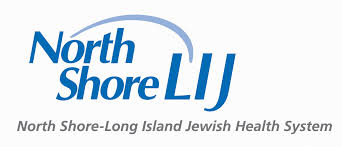Transfemoral Replacement of Aortic Valve With HLT MeriDIAN Valve Early Feasibility Trial
| Status: | Active, not recruiting |
|---|---|
| Conditions: | Cardiology |
| Therapuetic Areas: | Cardiology / Vascular Diseases |
| Healthy: | No |
| Age Range: | 70 - Any |
| Updated: | 4/21/2018 |
| Start Date: | April 27, 2017 |
| End Date: | April 2023 |
The purpose of this study is to evaluate the safety and performance of the HLT System in
patients with severe aortic stenosis who present at High Risk for aortic valve replacement
surgery.
patients with severe aortic stenosis who present at High Risk for aortic valve replacement
surgery.
Inclusion Criteria:
1. 70 years of age or older
2. Echocardiographic or hemodynamic based evidence of calcific (senile) aortic stenosis
with one of the following: aortic valve EOA <1.0 cm2 or 0.6 cm2/m2 , mean aortic valve
gradient >40 mmHg or peak aortic valve velocity >4 m/sec
3. Symptomatology due to aortic stenosis resulting in one of the following:
1. NYHA Functional Classification of II or greater
2. Presence of angina
3. Presence of syncope
4. Aortic valve annular diameter ≥ 24 and ≤26 mm measured by MSCT based on area or
perimeter
5. STS score of ≥8, or documented heart team agreement of high risk for surgical aortic
valve replacement (SAVR) due to frailty or comorbidities.
6. Geographically available, willing to comply with follow up and able to provide written
informed consent
Exclusion Criteria:
1. Congenital unicuspid or bicuspid aortic valve, or noncalcified aortic valve; or valve
eccentricity (calcific or otherwise) that in the opinion of the investigator could
compromise procedural success.
2. Patients at high risk for coronary obstruction in the opinion of the investigator
(e.g. combination of a coronary height < 12 mm and coronary sinus diameter < 30 mm)
3. Patients with low flow/low gradient aortic stenosis
4. Patients with significant annular calcification (e.g. Agatston score > 4000)
5. Pre-existing prosthetic heart valve in any position, or prosthetic ring
6. Severe aortic, mitral or tricuspid valve regurgitation
7. Moderate to severe mitral stenosis
8. Myocardial infarction within the past 30 days*
9. Echocardiographic evidence of intracardiac mass, thrombus or vegetation
10. LVEF < 30%
11. Severe pulmonary hypertension with pulmonary systolic pressure greater than two-thirds
of systemic pressure
12. Hemodynamic instability requiring inotropic drug therapy within the past 14 days
13. Untreated clinically significant coronary artery disease requiring revascularization
14. Presence of significant aortic disease such as atheroma, thrombus, or aneurysm which,
in the opinion of the investigator, precludes safe implant delivery
15. Blood dyscrasias defined as: acute leukopenia, acute anemia, acute thrombocytopenia,
history of bleeding diathesis or coagulopathy
16. Patient ineligible for or refuses blood transfusions
17. Unfavorable peripheral vascular anatomy or disease (e.g. severe obstructive
calcification, severe tortuosity or vessels < 6 mm) that would preclude passage of
catheters from the femoral arterial access to the aorta as evidenced by peripheral
MSCT
18. Active peptic ulcer or gastrointestinal bleeding within the past 90 days*
19. Symptoms of carotid or vertebral artery disease (e.g. stroke or transient ischemic
attack) within past 6 month, or treatment of carotid stenosis within past two months*
20. Renal insufficiency as demonstrated by a serum creatinine > 2.5 mg/dL or end stage
renal disease requiring chronic dialysis
21. Active infection requiring ongoing treatment
22. Need for emergent surgery or intervention other than the investigational procedure
23. Any therapeutic invasive cardiac procedure performed or planned to perform within 30
days of the index procedure, except for PCI which is within 7 days of the index
procedure*
24. Hypersensitivity or contraindication to procedural medication and device materials
(e.g. titanium, nickel, pork) which cannot be adequately pre-medicated
25. Life expectancy < 1 year due to non-cardiac co-morbid conditions
26. Currently participating in any investigational drug or device studies that may
confound the results of this study
27. History of any cognitive or mental health status that would interfere with study
participation
28. Following surgical consultation, patient is deemed inoperable in the event that
surgical intervention is required after HLT valve implantation attempt.
- At the time of procedure, if a subject's medical status has changed since
enrollment, the subject shall be re-evaluated for eligibility
We found this trial at
5
sites
300 Community Drive
Manhasset, New York 11030
Manhasset, New York 11030
(516) 562-0100

Phone: 516-562-4100
North Shore University Hospital North Shore-LIJ Health System includes 16 award-winning hospitals and nearly 400...
Click here to add this to my saved trials
Cincinnati, Ohio 45219
Phone: 513-585-4858
Click here to add this to my saved trials
Click here to add this to my saved trials
Click here to add this to my saved trials
Click here to add this to my saved trials